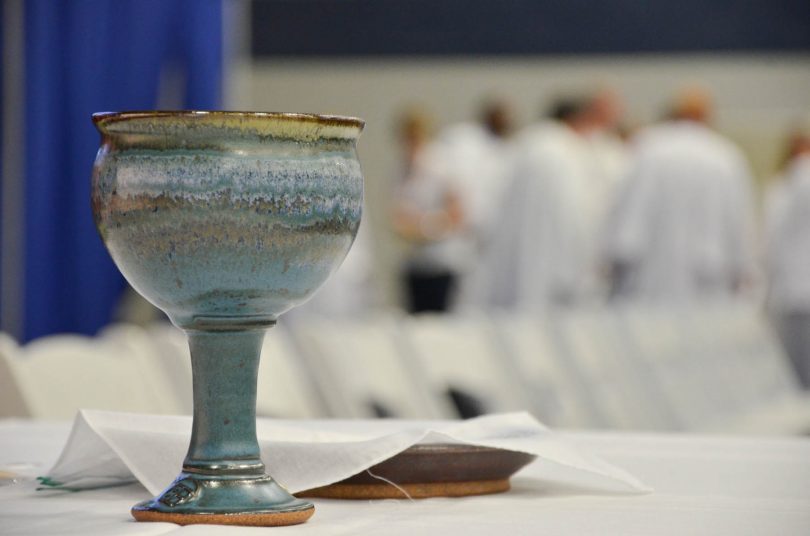Sixth Sunday after the Epiphany
Be Reconciled
Murder, adultery, divorce, and oaths are the four topics Jesus addresses in the Gospel lesson for today. He calls us to be true to our words by being honorable Christians. This should include a willingness on our part to make amends for our shortcomings and failures. Jesus encourages reconciliation as both preventative and corrective.
Reconciliation is vital to faithful living, as it prevents the escalation of disagreements into sinful outcomes. The call to reconciliation is therefore a call to guard ourselves from faltering and falling into sinful practices.
Reconciliation is the restoration of good relations—which may include making amends (remember Zacchaeus [Luke 19:1–10]?). It means that at some point the relationship was disrupted and needs working on. An offering given to God will be impacted by an unreconciled heart. It better serves the giver to make amends first. There is a sense of urgency in the need to mend our brokenness. Leave your gift at the altar, and go and be reconciled; then return to give the gift.
Reconciliation is about relationships. How can we have good relationship with God while having broken relationships with others? How can we be reconciled to God—which is important to our salvation—unless we are reconciled to one another? Reconciliation helps to maintain good relationships among people and is a necessary step to be in fellowship with God through Christ.
True to his way, our Lord challenges us to be different, to lift a higher standard. We are not to do what everyone else is doing or saying. Following Christ demands that we build better relationships in this life, even as we look forward to a better life. Today, as we anticipate a blessed eternity, let us follow Jesus’ command: “Be reconciled.”
Bevon White, pastor, Faith Moravian Church
Washington, District of Columbia

